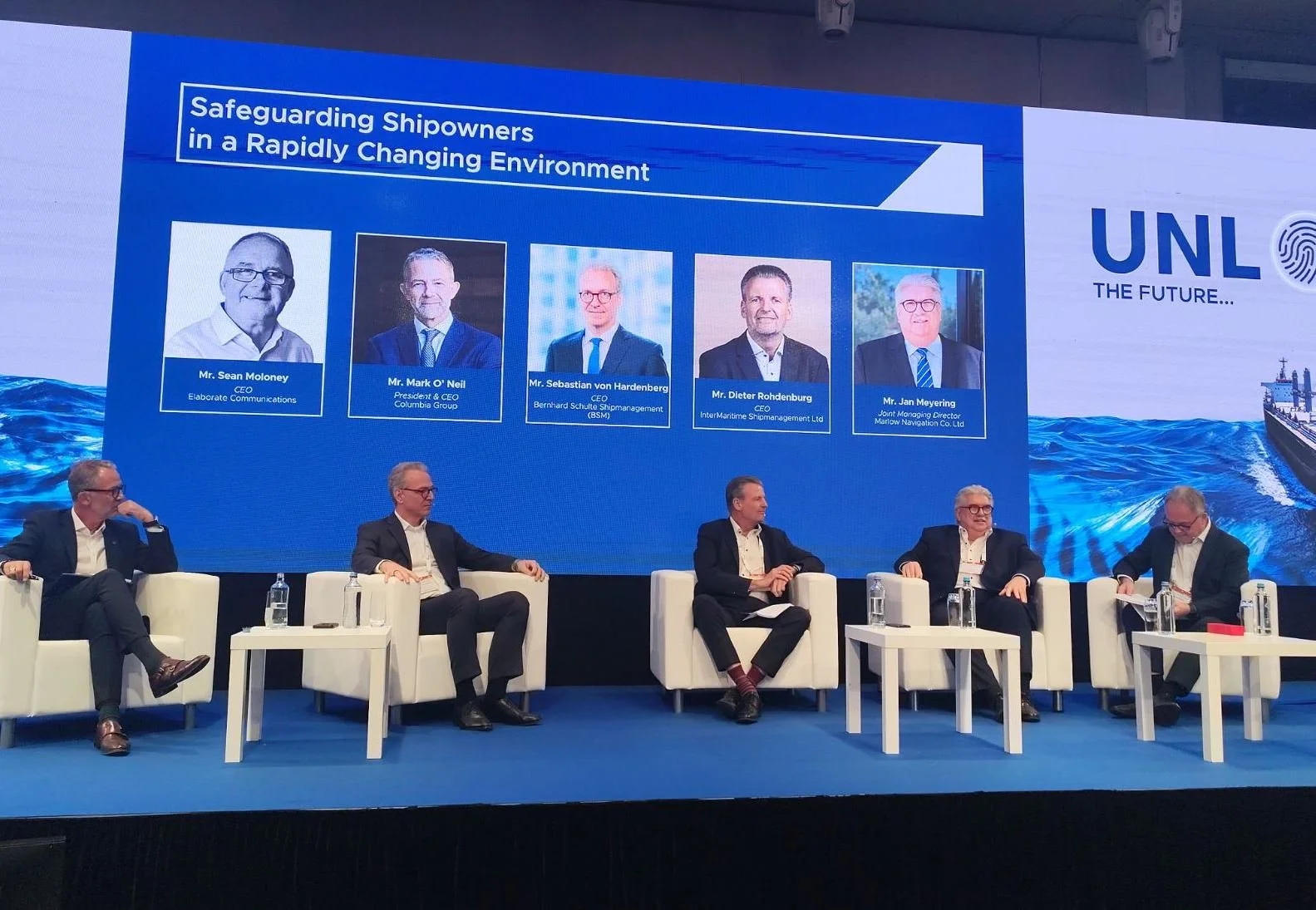High-level discussion at Maritime Cyprus 2025 explores evolving role of ship managers
The closing day of the Maritime Cyprus 2025 Conference featured a high-level panel discussion, titled ‘Safeguarding Shipowners in a Rapidly Changing Environment’, organised by the Cyprus Shipping Chamber.
Distinguished speakers from leading ship management companies in Cyprus Mr. Mark O’Neil (Columbia Group), Mr. Sebastian von Hardenberg (Bernhard Schulte Shipmanagement), Mr. Dieter Rohdenburg (InterMaritime Shipmanagement) and Mr. Jan Meyering (Marlow Navigation) shared their valuable insights on how ship managers are adapting to global challenges and evolving to better serve shipowners.
The session, moderated by Mr. Sean Moloney, Managing Director of Elaborate Communications, explored how the role of ship managers has expanded in response to the industry’s rapidly changing landscape. Topics included decarbonisation, digitalisation, ESG compliance and geopolitical uncertainty and how ship-management companies are acting as strategic partners to shipowners, safeguarding assets, ensuring crew safety and wellbeing, enhancing operational resilience and strengthening competitiveness.
Mr. O’Neil highlighted that shipmanagement is undergoing a major transformation, requiring new operational and service models. “We need to rethink how we work with shipowners, building closer partnerships through integrated service platforms that truly add value” he said. Emphasising the human element, he added, “Our people, both at sea and ashore, are our most important asset. Seafaring remains a great career opportunity and we must continue investing in lifelong training, education and wellbeing.”
Mr. O’Neil also stressed the importance of exploiting social media for raising public awareness as a means to promoting both a career at sea and employment opportunities ashore preserving, as such, a “people at the forefront” culture.
Building on this perspective, Mr. Rohdenburg noted that ship managers face increasing challenges, from decarbonisation and regulatory compliance to workforce skills. He stated that: “There are many complex issues discussed at IMO level, from STCW revisions to seafarer criminalisation to protectionism measures and it is vital we shape policies together within our industry bodies to protect shipowners’ interests”. He therefore, stressed that the relationship between managers and shipowners is key to addressing these challenges.
Complementing this, Mr. Von Hardenberg underlined the importance of a client-focused approach. “Everything starts with the customer: understanding their goals, ensuring safe and efficient operations and providing competent crew remain our top priorities,” he stated. He also emphasised the need for collaboration across the sector and stated that, “We must work collectively through industry associations to tackle fragmentation and pursue our common goals without losing track of our role as ship managers, which is non-other than assisting owners to navigate the regulations landscape.” Mr. Von Hardenberg also stressed the importance of offering competitive packages so as to attract and retain the so much needed seagoing workforce.
Finally, Mr. Meyering expressed the view that, due to the fact that the shipping industry is ever more challenged by increasingly demanding performance requirements, performance-based relationships between ship owners and managers create a win-win situation as owners gain a competitive advantage through more aligned interests, while ship managers obtain rewards for their performance. He also pointed to the need for flexibility in the sense that, “Shipping must remain adaptable, ready to support shipowners and crews globally, as the industry evolves.”
He therefore referred to the importance on focusing on crew development and adaptability, saying: “Seafarers are the key to our future. We must offer them real career paths, more training and ensure their wellbeing.”

